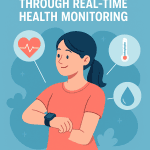This article is for informational purposes only and should not be considered medical advice. Always consult with a healthcare professional for personalized recommendations.
Understanding Heart Health
The heart is a vital organ that pumps blood throughout your body, supplying oxygen and nutrients to tissues while removing waste products. Maintaining heart health is crucial for overall well-being and longevity. But how can we support this essential organ through our diet? The answer lies in the nutrients we consume.
Essential Nutrients for Heart Health
Several nutrients play a significant role in maintaining cardiovascular health. Here’s a closer look at some of the most important:
1. Omega-3 Fatty Acids
Omega-3 fatty acids are polyunsaturated fats found in fish like salmon, mackerel, and sardines, as well as in flaxseeds and walnuts. They help reduce inflammation, lower triglycerides, and can decrease the risk of heart disease. Research indicates that omega-3s can also improve endothelial function, which is essential for maintaining vascular health (American Heart Association, 2022). The American Heart Association recommends eating fish at least twice a week to reap these benefits.
Pathophysiology and Mechanisms
Omega-3s exert their heart-protective effects primarily by influencing lipid metabolism and reducing inflammation. They help lower levels of very-low-density lipoprotein (VLDL) and triglycerides, which are risk factors for atherosclerosis. Additionally, omega-3s enhance nitric oxide production, promoting vasodilation and improving blood flow.
2. Dietary Fiber
Fiber, particularly soluble fiber, can help lower cholesterol levels and improve heart health. Foods high in soluble fiber include oats, beans, lentils, fruits, and vegetables. Soluble fiber works by binding with cholesterol in the digestive system, preventing its absorption into the bloodstream. Aim for at least 25 grams of fiber per day to support heart health (National Institutes of Health, 2021).
Nuanced Caveats
While increasing fiber intake is beneficial, it’s essential to do so gradually to avoid gastrointestinal discomfort. Additionally, focus on whole food sources rather than processed fiber supplements, which may lack the additional nutrients found in natural foods.
3. Antioxidants
Antioxidants, such as vitamins C and E, protect the body from oxidative stress, which can damage cells and lead to heart disease. Foods rich in antioxidants include berries, dark chocolate, and green tea. Incorporating these foods into your diet can help combat inflammation and support vascular health. Studies suggest that diets high in antioxidants are associated with lower rates of heart disease (World Health Organization, 2020).
Mechanisms of Action
Antioxidants neutralize free radicals, unstable molecules that can cause cellular damage. This process helps reduce inflammation and improve endothelial function, thereby lowering cardiovascular risk.
4. Potassium
Potassium helps regulate blood pressure by balancing sodium levels in the body. High potassium intake is linked to lower blood pressure and reduced risk of stroke. Foods high in potassium include bananas, sweet potatoes, spinach, and avocados. Strive for about 4,700 mg of potassium per day for optimal heart health (Centers for Disease Control and Prevention, 2021).
Practical Tips for Increasing Potassium
Incorporate potassium-rich foods into your meals by adding spinach to smoothies, choosing baked sweet potatoes as a side dish, or snacking on bananas. Consider using herbs and spices to flavor foods instead of salt, which can help maintain a healthy sodium-to-potassium ratio.
5. Magnesium
Magnesium plays a role in over 300 biochemical reactions in the body, including those that regulate heart rhythm. It helps maintain normal blood pressure and is critical for the electrical stability of the heart. Foods rich in magnesium include nuts, seeds, whole grains, and leafy greens. Adults should aim for 310-420 mg of magnesium daily, depending on age and gender (UpToDate, 2023).
6. Folate
Folate, a B-vitamin, is essential for DNA synthesis and repair. It also helps reduce levels of homocysteine, an amino acid linked to heart disease. High homocysteine levels can damage blood vessels and increase the risk of cardiovascular events. Leafy greens, legumes, and fortified cereals are excellent sources of folate. Aim for 400 mcg per day (NHS, 2022).
7. Vitamin D
Vitamin D is crucial for heart health, with studies suggesting a link between low levels and increased cardiovascular risk. It plays a role in inflammation reduction and maintaining healthy blood pressure. Sunlight exposure helps the body produce vitamin D, but it can also be found in fortified foods and fatty fish. Aim for 600-800 IU daily (American Heart Association, 2022).
Incorporating Heart-Healthy Nutrients into Your Diet
Now that you know which nutrients are vital for heart health, how can you easily incorporate them into your daily meals? Here are some practical tips:
Meal Planning
Start by planning meals that include a variety of heart-healthy foods. For example, consider a breakfast of oatmeal topped with berries and walnuts, a lunch of spinach salad with chickpeas and avocado, and a dinner of grilled salmon with quinoa and steamed broccoli. Try to include a rainbow of fruits and vegetables to ensure a broad spectrum of nutrients.
Snack Wisely
Choose snacks that are rich in fiber and healthy fats. Nuts, seeds, and fruits are excellent options. Instead of reaching for chips, try air-popped popcorn topped with nutritional yeast or a small handful of almonds. You can also prepare energy balls made from oats, nut butter, and dried fruit for a quick, nutritious snack.
Stay Hydrated
Don’t forget about hydration! Water is essential for overall health, but you can also hydrate with herbal teas and water-rich fruits and vegetables. Aim for at least 8 cups (64 ounces) of water daily, adjusting for activity level and climate.
Myth vs. Fact
| Myth | Fact |
|---|---|
| All fats are bad for heart health. | Healthy fats, such as those found in avocados, nuts, and fish, are beneficial for heart health. |
| Only older adults need to worry about heart health. | Heart health is important at every age; early prevention can lead to better outcomes later in life. |
| High cholesterol is always bad. | Not all cholesterol is harmful; HDL (good) cholesterol helps protect against heart disease. |
| Supplements can replace a healthy diet. | While supplements can help, they should not replace a balanced diet rich in whole foods that provide a variety of nutrients. |
Patient Vignette
Meet Sarah, a 52-year-old woman who recently learned about the importance of heart health. After a routine check-up revealed elevated cholesterol levels, she decided to make some dietary changes. By incorporating more omega-3 fatty acids through salmon and chia seeds, increasing her fiber intake with whole grains, and adding more fruits and vegetables to her meals, she not only improved her cholesterol levels but also felt more energetic and vibrant. Sarah’s story is a reminder that small dietary changes can lead to significant health benefits.
Frequently Asked Questions
1. What are the best foods for heart health?
Foods rich in omega-3 fatty acids, fiber, antioxidants, and potassium are excellent choices. Examples include fatty fish, whole grains, fruits, and vegetables.
2. How much fiber do I need for heart health?
Adults should aim for at least 25 grams of fiber per day to help lower cholesterol and improve heart health.
3. Can supplements replace heart-healthy foods?
While supplements can help, they should not replace a balanced diet rich in whole foods that provide a variety of nutrients.
4. How can I lower my cholesterol through diet?
Focus on increasing your intake of soluble fiber, healthy fats, and antioxidants while reducing saturated and trans fats.
5. Is it too late to improve my heart health?
No! It’s never too late to make healthier choices. Even small changes can significantly impact your heart health.
6. What role does exercise play in heart health?
Regular physical activity helps maintain a healthy weight, lowers blood pressure, and improves cholesterol levels, all contributing to better heart health.
7. Are there any risks associated with taking too many supplements?
Yes, excessive intake of certain vitamins and minerals can lead to toxicity and adverse health effects. It’s best to consult with a healthcare professional before starting any supplement regimen.
Key Takeaways
- Omega-3 fatty acids are crucial for reducing inflammation and lowering triglycerides.
- Dietary fiber helps lower cholesterol and supports heart health.
- Antioxidants protect against oxidative stress and inflammation.
- Potassium and magnesium are essential for regulating blood pressure and heart rhythm.
- Incorporating a variety of heart-healthy foods can significantly improve cardiovascular wellness.
References
- American Heart Association. (2022). Fish and Omega-3 Fatty Acids.
- National Institutes of Health. (2021). Dietary Fiber: An Overview.
- Centers for Disease Control and Prevention. (2021). Heart Disease Facts.
- World Health Organization. (2020). Healthy Diet.
- UpToDate. (2023). Nutritional Management of Cardiovascular Disease.
- NHS. (2022). Vitamins and Minerals for Heart Health.








Post a comment